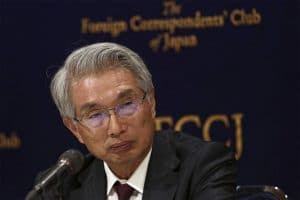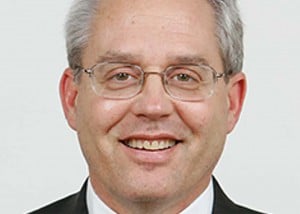It may just be Jan. 2, but the new year, and new decade, are getting off to quite a start, at least for the automotive world where the burning question is: How did Carlos Ghosn, the former head of the Renault-Nissan-Mitsubishi Alliance, sneak out of Japan?
The 66-year-old executive, who had been awaiting trial in Tokyo on an assortment of financial corruption charges, turned up in Lebanon barely hours before 2019 ended, a country where he is highly unlikely to face extradition. There are any number of stories circulating about how Ghosn might have pulled off his bail jumping, one Lebanon media outlet claiming he was smuggled out of his residence in Tokyo inside a box.
Getting off an island nation isn’t easy when you are being closely surveilled, so his successful escape is proving to be a major embarrassment for Japanese authorities. The case is, in fact, putting the country under the spotlight in light of Ghosn’s claim that he was a “hostage” in “a rigged Japanese justice system where guilt is presumed.”
(Carlos Ghosn jumps bail, flees Japan)
The prelude to Ghosn’s Great Escape begins Nov. 19, 2018, shortly after his corporate jet landed in Tokyo, when police come onboard and arrested him and his lieutenant, Greg Kelly. For most of the next four months, Ghosn is locked away in a tiny, unheated cell at the Tokyo Detention Center as prosecutors string out a series of charges designed to prevent the former executive from getting bail.

While in Japan Carlos Ghosn was denied the ability to speak with his wife, Carole, unless he received permission from the court.
Eventually, Ghosn does win release after the Japanese government starts to find itself under the microscope for its controversial approach to justice – a system that swallows up the accused and in which prosecutors claim an unlikely 90-plus percent conviction rate.
Once Ghosn finally does get out of his cell – after posting a nearly $14 million bond – he is given harsh restrictions that include wearing a monitoring device, constant, close surveillance, the hiring of a security team, and severe limits on not only his travel but his use of the Internet. Claiming they want to prevent any effort to conceal evidence, prosecutors even convince the court to prevent Ghosn from meeting with his wife, Carole.
Most days, according to reports, Ghosn met with his lawyers to discuss plans for his trial early this year, though neighbors reported he did occasionally leave the residence he was renting with his daughters.
But then came the news that the Brazilian-born executive had somehow fled Japan, arriving in Turkey before moving on to Lebanon, where his family hails from. Such a move seemed highly unlikely, if for no other reason than the heavy surveillance and the fact that his Tokyo lawyer was holding Ghosn’s three passports – from France, Brazil and Lebanon.

Known as “the Razor,” Ghosn attorney Junichiro Hironaka, held Ghosn’s passports and the former Nissan CEO still managed to leave Japan.
(Nissan to get hit with $22M fine for underreporting Ghosn’s compensation)
A number of theories, backed by uncertain evidence, have popped up to explain how he got out of Japan:
· One of the most intriguing, presented by Lebanese TV station MTV, claims a Christmas band visited his residence, Ghosn then slipping inside a box ostensibly holding musical instruments. He was then shipped out of the country before taking a private plane to turkey;
· Using data available on the Internet, Japan’s Asahi newspaper and the Wall Street Journal found records of a long-range private jet leaving the Kansai Airport for Turkey on Dec. 29, another jet leaving Istanbul shortly afterwards bound for Beirut;
· The French newspaper Le Monde claims the escape was organized by Carole Ghosn and her brothers, allowing Carlos to enter Lebanon using an ID card;
· Another French newspaper, Les Echos, claims Ghosn left Japan using a false identity and a forged passport, again traveling out of the country through a small airport outside Tokyo where he was less likely to be recognized.
Significantly, some reports claimed Ghosn may have decided to move on his escape bid during the holidays because he learned he might be facing new charges, with new evidence indicating further financial crimes.

Former Nissan exec Greg Kelly – who was arrested along with Ghosn – suggested Ghosn’s successor Hiroto Saikawa was being overpaid in a Japanese interview in June.
The man hailed as the savior of near-bankrupt Nissan two decades ago was arrested following an internal Nissan investigation that, initially, focused on claims Ghosn had severely underreported his income. Other charges began to pile up, with claims he may have diverted millions of dollars in Nissan money through associates in the Middle East.
For his part, Ghosn repeatedly asserted his innocence. If anything, he has argued, he was the victim of a “coup” aimed at ridding Nissan of foreign influences.
His case follows other high profile instances in which foreigners have found themselves facing harsh conditions in Japanese prisons while facing questionable criminal allegations. That includes the case of Julie Hamp, the one-time global head of Toyota PR, who spent more than a month in detention before being shipped back to the U.S.
Yoichi Masuzoe, the former governor of Tokyo, is one of those who has been outspoken in his criticism of the Japanese justice system. He has called for major reforms, in a blog post warning that, “Otherwise, the image of a country where suspects are subject to long-term detention in even economic cases will be known around the world, and it will discourage talented foreigners from coming to Japan to expand their businesses.”
But, if anything, Ghosn’s escape may be pushing embarrassed Japanese authorities – backed by the country’s media – in the other direction. On Wednesday, the country’s largest newspaper, the Yomiuri Shimbun, wrote that, “Running away is a cowardly act that mocks Japan’s justice system.”
What Japanese officials will do next is uncertain. Lebanon doesn’t extradite its citizens, regardless of the charges they face abroad. But whether Ghosn, a global jet-setter, will be content to stay within the small country’s borders, is uncertain.
(One year after arrest, Carlos Ghosn fires back)
As for Japanese prosecutors, whether they might not try the former executive in absentia is also uncertain. In some ways, a well-placed source told TheDetroitBureau.com, they may actually be happy Ghosn is gone and won’t turn the trial into a circus. If, as the executive has argued, they simply wanted him out of the country, they achieved that goal.

